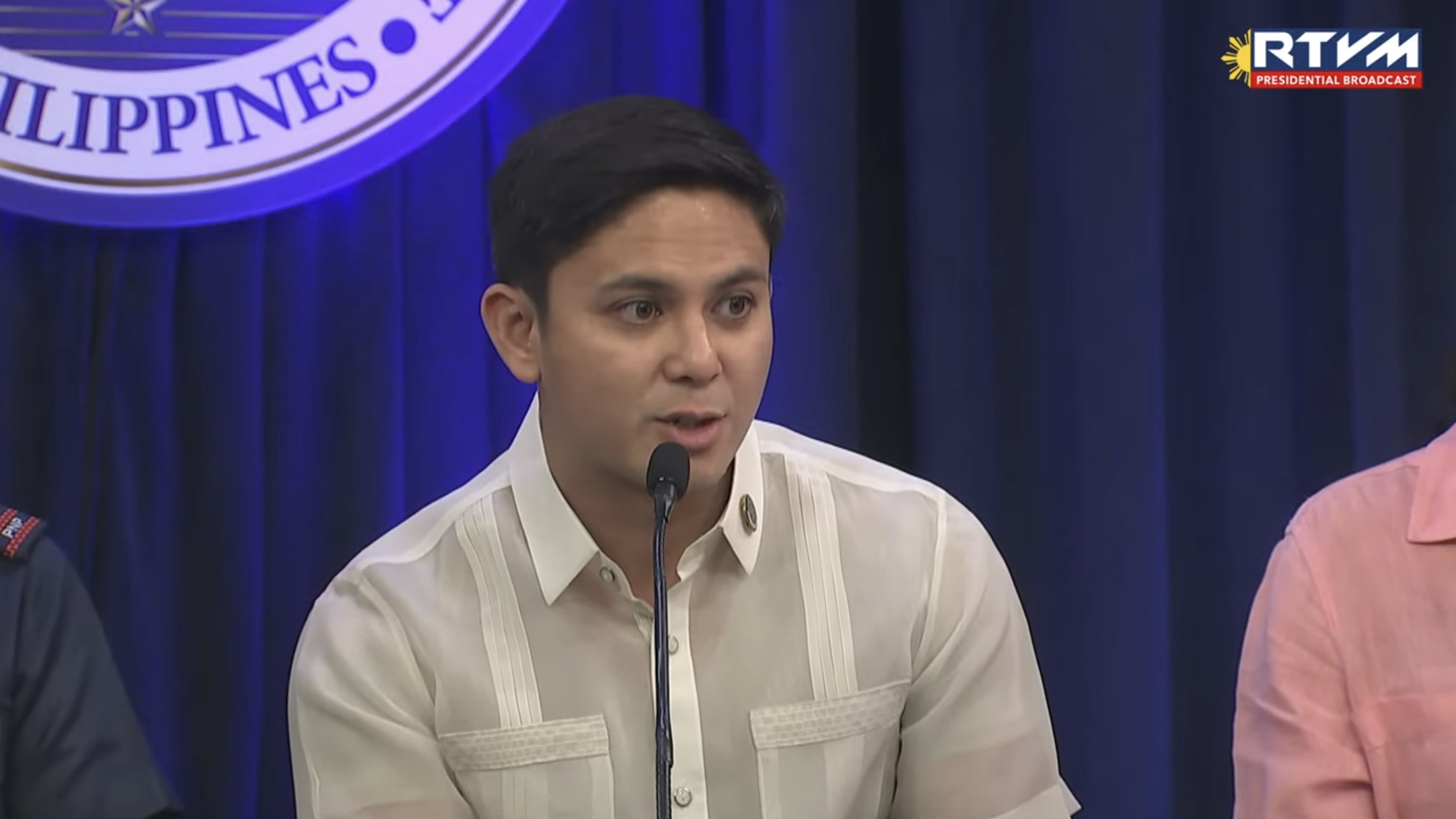DOJ cautions: Don't work with ICC on drug probe
At A Glance
- Clavano said that while the government has little hold over retired officials working with the ICC, anything resulting from their cooperation will not be recognized by the Philippine government.
Department of Justice (DOJ) Assistant Secretary Mico Clavano said that government officials and employees cooperating with the International Criminal Court's (ICC's) probe into the previous administration's drug war may be held accountable for possibly violating Republic Act (RA) No. 6713 or the Code of Conduct for Public Officials and Employees.

Clavano said this after former Senator Antonio Trillanes IV said he was informed that there were already police officials coordinating with the ICC in its investigation into the drug war of former president Rodrigo Duterte.
In a press briefing in Malacañan on Thursday, April 25, the Justice official said that while his office has not received information regarding Trillanes' claims, he reiterated that the Philippines' policy is to not cooperate with the ICC.
"We've been consistent from the very start that we have a working justice system here in the Philippines evidenced by a lot of different cases and reforms that we've been undertaking, and the commitment has never been stronger to prevent and to hold responsible and accountable those erring law enforcement officers who engage in these heinous crimes," he said.
"Even without verifying the information, the government's stance has been consistent ever since. The President has been very firm in saying that we will not recognize the jurisdiction of the ICC because we indeed have a very well and robust justice system," he added.
According to Clavano, government officials working with the ICC in its drug war probe may be breaking the law, particularly RA 6713 or the Code of Conduct and Ethical Standards for Public Officials and Employees.
"When a govt officer or official is coordinating with the ICC against the direction, or the order and the policy, of the government, there may be accountability involved," he said.
"If there is a law enforcement or government official that goes against the policies and orders of the authorities in position, then, obviously, there will be some sort of conflict of interest. There will be accountabilities and, definitely, liabilities that go with it," he added.
In an interview following the briefing, Clavano told Palace reporters that the accountability would depend on the official's level of participation with the ICC's probe.
"It depends on the level of participation that they will undertake so if they really go against the President's wishes or directive not to cooperate with them and yet they cooperate with them, then that could fall under yung gross neglect of duty or disobedience to authority," he said.
"These are the type of things that can come into play [but], at the same time, pag hindi natin nakikita yung facts pa at wala pang nangyayari (if we are yet to see the facts and nothing has happened yet), it would be completely hypothetical to think about or to discuss," he added.
Clavano said the erring officials would face administrative charges and possibly be dismissed from service.
"Sa nakikita ko admin case 'yan pero (From what I see, it's ad administrative case but) if they are in the position and they are part of the government, it is possible na maalis sila (they could be dismissed) if they cooperate with the ICC," he said.
RA 6713 states that conflict of interest arises "when a public official or employee is a member of a board, an officer, or a substantial stockholder of a private corporation or owner or has a substantial interest in a business, and the interest of such corporation or business, or his rights or duties therein, may be opposed to or affected by the faithful performance of official duty."
The law requires public officials and employees to resign from their positions in any private business enterprise and/or divest themselves of their shareholdings or interests.
In addition, the law requires public officials and employees to uphold nationalism and patriotism by, among others, maintaining and defending Philippine sovereignty against foreign intrusion.
Any violation proven in a proper administrative proceeding shall be sufficient cause for the removal or dismissal of a public official or employee, even if no criminal prosecution is instituted against him.
Meanwhile, Clavano said the government has no hold over retired officials working with the ICC but maintained that anything resulting from their cooperation will not be recognized by the Philippine government.
"If they are acting in their civilian capacity or personal capacity, then, of course, we have little to hold over them. However, again, we will not recognize anything that will come out of that conversation or coordination with them," he said.
President Marcos has been firm that the Philippines will not cooperate with the ICC as it has no jurisdiction over the country, particularly since the Philippines has a working justice and law enforcement system.